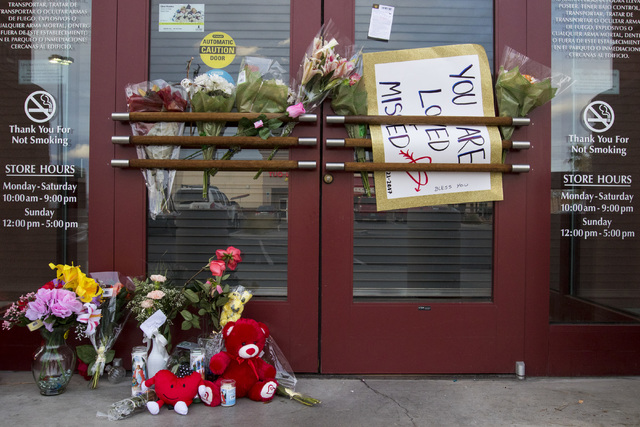Training for security guards less than you’d think

It makes no sense.
To become a licensed barber in Nevada, you need 1,500 hours of training.
But to become a certified armed guard, someone who can make the difference between life and death, you need only eight hours in the classroom and five hours on the firing range.
Should a security guard or the people he’s protecting end up in harm’s way, can anyone realistically expect that such minimal training affords an optimal chance for a good outcome? Is requalifying every six months with a firearm enough?
They’re questions worth asking in the wake of the Jan. 21 tragedy at the Jared jewelry store in Henderson. There, an armed robber entered the store brandishing a gun. According to Henderson police, the guard on duty, believing the life of clerk Kimberlee Ann Kincaid-Hill was in danger, fired his weapon.
His round missed the robber and struck Kincaid-Hill in the chest. She later died at Sunrise Hospital and Medical Center.
The robber escaped empty-handed and is still at large. A Henderson police spokesman said the would-be robber will face murder charges because Kincaid-Hill was killed during the crime.
The guard, still unnamed by police, won’t face charges in the fatal accident.
That is probably little consolation to the guard, notes Sandi Davies, executive director of the Florida-based International Foundation for Protection Officers.
Unless the guard has a heart of stone, she now believes he’s serving a life sentence of regret, for which there is no parole.
While Davies said there’s no way of knowing whether more training would have resulted in a different outcome in Henderson, she did say that what is known is that firing accurately in a stressful situation is extremely difficult even with solid training.
In 2012, for example, well-trained New York police wounded nine onlookers as they took down a murder suspect.
To give armed security the best chance at success, Davies’ 12,000-member group advocates that armed guards receive weapons instruction comparable to that of police.
However, no state has a firearms training requirement equivalent to the police requirement. California requires 54 hours.
During a 28-week academy, Las Vegas Metro police recruits receive 80 hours, 40 hours of basic firearms training and 40 hours of tactical scenario training, where instructors help officers decide in an instant whether to fire their weapons.
Such rigorous training prior to 24 weeks of field training helps prepare them for dealing with stress.
“The training that states require for armed security is sad,” Davies said. “They’re just put there to deter crime, but if something happens, they’re not really prepared.”
Though Steve Baker, of VTI Associates, a Henderson security firm, would like to see more training of guards, he doesn’t see businesses paying for it.
“We’re talking about a $12-an-hour job,” he said.
Pat Murphy, a Houston-based former cop who testifies nationwide as an expert witness in court cases dealing with security, said that in addition to more situational training for armed security, he wants them to undergo mental tests as well.
He said some guards want to shoot too quickly.
“I think the public thinks the guards are trained to be quasi-law enforcement,” he said. “Unfortunately for both them and the public, they’re generally far from it.”
Paul Harasim’s column runs Sunday and Tuesday in the Nevada section and Monday in the Health section. Contact him at pharasim@reviewjournal.com or 702-387-5273. Follow @paulharasim on Twitter.